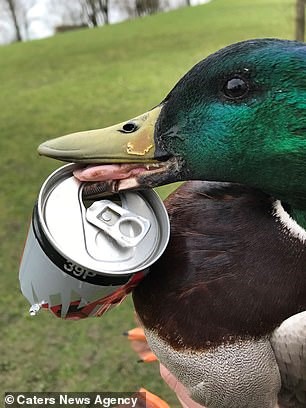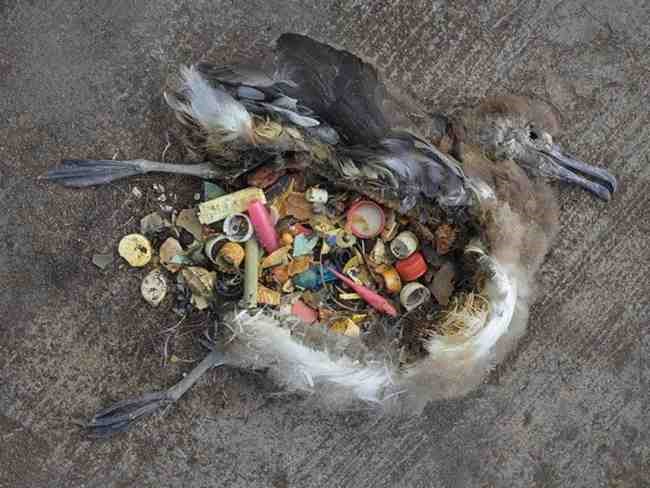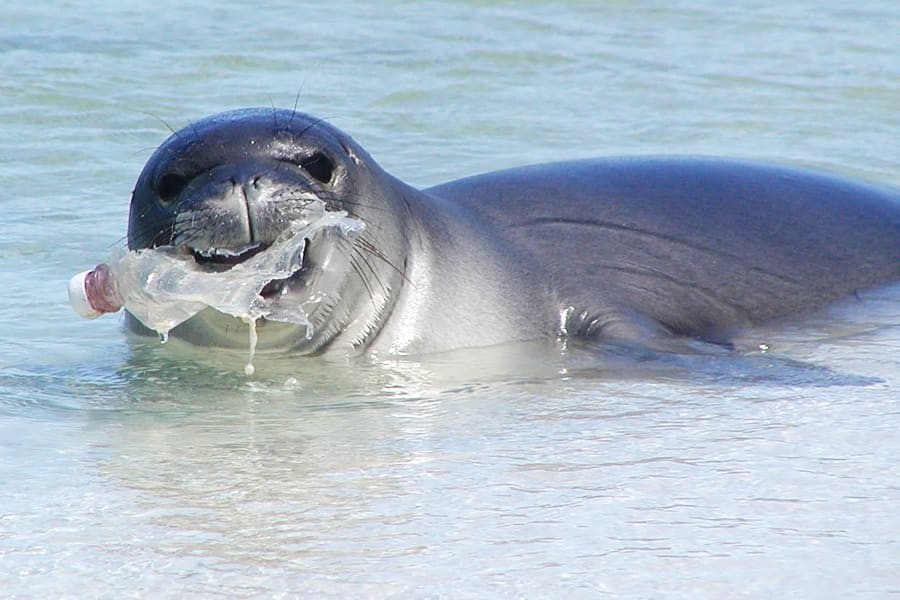By: Lorelei Elkins
 Researchers estimate that over one million animals die each year after becoming entrapped in or ingesting litter. The most common killer of animals is plastic litter, notably impacting marine animals. Each year more than 100,000 dolphins, fish, whales, and turtles drown after becoming entangled or eating plastic. This is just the verified count of impacted animals; many more deaths remain unrecorded.
Researchers estimate that over one million animals die each year after becoming entrapped in or ingesting litter. The most common killer of animals is plastic litter, notably impacting marine animals. Each year more than 100,000 dolphins, fish, whales, and turtles drown after becoming entangled or eating plastic. This is just the verified count of impacted animals; many more deaths remain unrecorded.
Marine animals are not the only ones impacted by improperly disposed of trash. Depending on the type of litter, birds can die from ingesting poisons from moldy food, cigarette butts, and other harmful substances. Plastic, balloons, and brightly colored pieces of litter looks irresistible to foraging birds but can’t be digested. These items stay in the digestive tract blocking food passage and eventually the bird will starve.
 Animals can be injured from broken glass or plastic even if it isn’t swallowed. Fishing line or other string can become wrapped around animals’ legs and necks causing fatal injuries. Bird nests have been found to be constructed in part of fishing line which had strangled the baby birds. Large wild animals are not immune either. They have been found with their heads stuck in discarded buckets, cans and plastic containers.
Animals can be injured from broken glass or plastic even if it isn’t swallowed. Fishing line or other string can become wrapped around animals’ legs and necks causing fatal injuries. Bird nests have been found to be constructed in part of fishing line which had strangled the baby birds. Large wild animals are not immune either. They have been found with their heads stuck in discarded buckets, cans and plastic containers.
Litter also impacts the delicate food web on which we all depend. We know that significant bioaccumulation occurs. Smaller animals that ingest micro plastics and micro toxins are then eaten by larger animals. This ensures that the plastics and toxins make their way up the food chain. The larger wildlife and even domestic animals become the recipients of a significant amount of toxins which are stored in their fatty tissue, simply by eating and drinking. This causes a host of physical ailments for every creature involved, including us.
 In order to combat this significant environmental problem, remember the Three Rs: Reduce (your waste), Reuse (what you can) and Recycle the rest. The less litter produced, the less will end up in the environment.
In order to combat this significant environmental problem, remember the Three Rs: Reduce (your waste), Reuse (what you can) and Recycle the rest. The less litter produced, the less will end up in the environment.
Pick up litter when you’re out for a walk, or participate in an organized litter cleanup event in your community. Always dispose of trash properly in tightly closed bags that are less likely to break and scatter. Be sure trash cans are positioned so they will not tip over and spill. At public events, always use the available trash cans even for the smallest pieces of litter such as used chewing gum and cigarette butts.
Be a good example for your family members, friends, co-workers and neighbors. Help create a world that’s beautiful and healthy for both humans and wildlife.